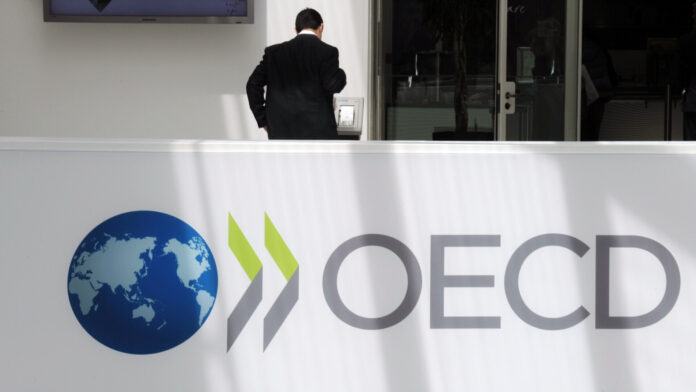The Organization for Economic Cooperation and Development (OECD) cut off 1.5 percentage points from its December global growth outlook to 3% this year, it announced Wednesday, while it adjusted its 2023 estimate downward to 2.8%, according Politico.
The OECD also expects inflation to average 8.8% across its 38 members this year— up from 4.5% in December — before slowly receding in 2023.
The downgrade is mostly due to Russia’s invasion of Ukraine, with Europe being the hardest hit due to higher exposure, notably through energy dependency on Russia. Continued lockdowns in China and disruptions to supply chains are also factors, the intergovernmental organization said.
“As a result of Russia’s war, global growth will be lower, and inflation will be higher for longer,” said OECD Secretary-General Matthias Cormann, speaking in Paris.
That’s a further downgrade for the world economy, in line with the World Bank’s forecast of 2.9% issued Tuesday, and more pessimistic than the International Monetary Fund’s April outlook of 3.6 percent growth for both this year and next.
The outlook could weaken further due to higher oil and gas prices, a possible Russian gas embargo in Europe, reduced consumer confidence and higher financing costs for companies — which together could further slash 1.25 percentage points from growth and raise inflation by 1 percentage point in 2023 in Europe. All this “could potentially leave many countries close to, or in, recession in 2023,” the OECD wrote.
The OECD’s recommendations include tightening monetary policy as needed; reviewing public expenditure to ensure it’s only aimed at the most vulnerable; reducing the export bans on foodstuffs that are exacerbating inflation; and increasing investments for clean transport and energy.
“The price of this war … is very high and we should not add to this price the cost of a food, social or climate crisis,” said OECD Chief Economist Laurence Boone.


